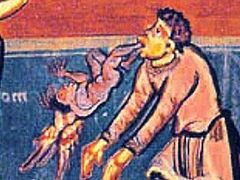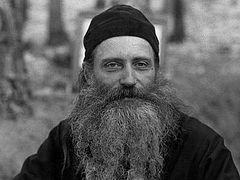Source: The Morning Offering
March 8, 2016
From Old Testament times, the people of God prepared for holy occasions with fasting and prayer, and the New Testament continued with this holy tradition. The Lord Himself fasted for forty days before beginning His earthly ministry, demonstrating the importance of fasting before starting any spiritual task. Christ even went so far as saying “When you fast” (Matt. 6:16), rather than If you fast. Our Lord told his disciples that “when the bridegroom shall be taken from them, and then they shall fast”. If we are to overcome evil, the Lord Jesus Christ said we must pray and fast, for the devil and his foul spirits depart not out but by prayer and fasting. Since prayer and fasting are seen as two weapons for us to do battle, how foolish we would be to use only one weapon, for what soldier would enter a battle field with only one weapon at his disposal.
The scriptures document, throughout, the importance of fasting for the health of the soul, and the Church has established fasting periods that actually total up to about half of the year, averaging about 180 days, when added all together. Each section of the Church calendar has particular periods of fasting, with the winter fast before Christmas; the spring fast of Great Lent; the summer Apostles fast; and the fall Dormition fast. Throughout the rest of the year, we Orthodox Christians observe two days of fasting per week, with Wednesdays and Fridays given over as fast days. We even see the Church assigning special fast days that are connected with individuals feasts such as the Eve of Theophany, the Beheading of Saint John the Forerunner, and the Elevation of the Holy Cross.
Modern science has come to see that the spiritual discipline of the Church’s fasting rules promotes good health, for avoiding meat and dairy products two days per week, help keep animal fats and related cholesterol problems under control. Our contemporary medicine has discovered nothing new, for the Church has known the value of fasting for thousands of years. And this fasting, when wholly embraced, helps us empty ourselves while making way for the grace that is abundant during the fast periods, to bring about transformation of the soul.
With love in Christ,
Abbot Tryphon




